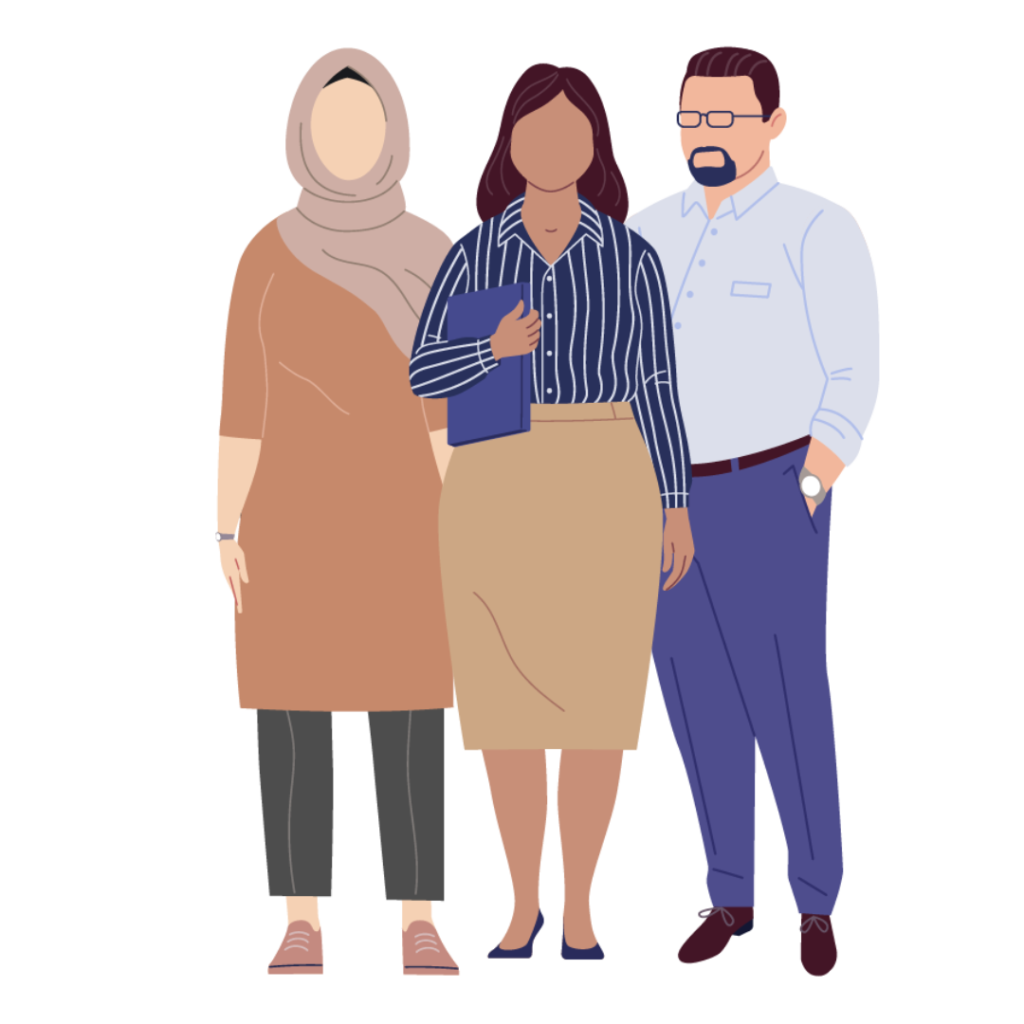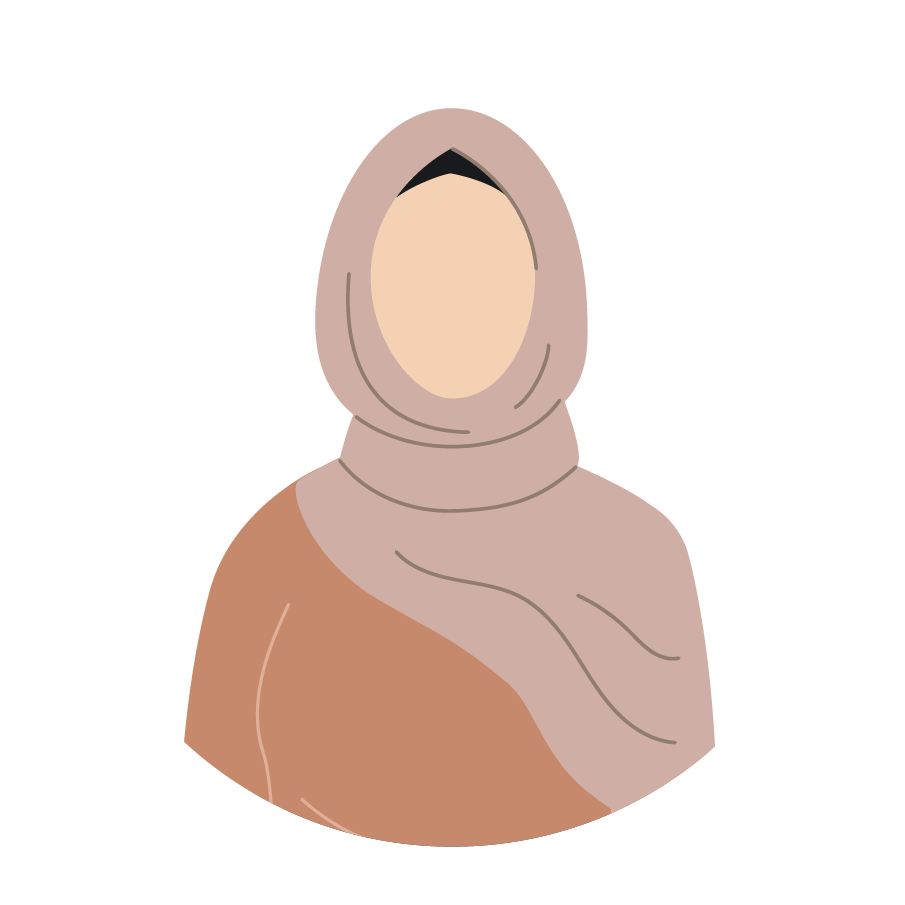Q & A Toronto
Conversation with Vibha Vohra-Bhalla, Dan Kennedy, and Mazeena Rafi
ACCES Employment runs the Connector program out of their five locations in the Greater Toronto area. They are the largest organization in Canada to house the Connector Program, and they assist job seekers from diverse backgrounds, who are facing barriers to employment to integrate into the Canadian job market. In conjunction with their mentorship program, they have been connecting newcomers into the community since 2017. We sat down with Mazeena Rafi, Connector Program Coordinator, Dan Kennedy, former Manager of Employment Ontario, and Vibha Vohra-Bhalla, Director, Services and Community Engagement to discuss the Connector Program, and its implementation in the Greater Toronto Area.

Alida:
ACCES is quite a large organization with many projects and programs underway at any given time. How does the Connector Program fit into the organization, and what value does it bring?

Mazeena:
ACCES has a lot of good programs for internationally trained professionals, they also partner with local universities and colleges, and they work with TRIEC in mentoring programs. The Connector Program has access to all these programs and takes Connectors from all the programs, and offers the program to clients in each of these areas. The Connector Program helps keep people engaged in the organization, because if they aren’t ready for a program, or are waiting for a program to start, I can engage them in my program, and they stay involved. I can also get Alumni of many programs to be Connectors, and give them a chance to give back to the organization. I never have to struggle to get Connectors!
Dan:
ACCES believes strongly that mentorship, as a part of the job search and resettlement process, brings a positive impact to a person. The Connector Program is one of several mentorship programs at ACCES. There isn’t much out there like the NCP – it’s a decentralized, collaborative community of individuals – connecting Connectees and Connectors for the benefit of the community. It allows for good problem solving and innovative approaches because of the various voices at the table. Everything is so well thought out because everyone brings their own knowledge and experience to the table. NCP offers flexibility to organizations, good information for clients, good partnerships with employers, and all this information is given to coordinators. For clients, it offers a great opportunity for people to connect and is much more consumable for people as Connectors. All this knowledge brings an incredible amount to ACCES because we can build these perspectives into our programs.
Vibha:
Dan’s mentioned the mentoring piece, we also have a lot of clients who are involved in a variety of programs, and they want to give back to the organization. In the Connector Program, they can share their experiences, their knowledge, give the Connectees peer support, and connect them to someone who understands that they are going through. Connections help both the connectees and connectors, so both parties see value in it. Employers also see value in it. The virtual option of the program also fits so well with our need to keep people safe and ensure that they are comfortable and safe in our programs. We believe that it’s great to be the selected organization in an area and to have this brand associated with our organization, and as a tool to assist our clients. It’s good to be affiliated with Halifax Partnership and be able to collaborate with people and organizations across the country. This all ultimately benefits our clients.
Alida:
So even though it is only a small part of your overall organization, it really does create benefits throughout the organization. How does the program impact your community?

Mazeena:
I love seeing my connectees. As a consultant, my job is to help my newcomer clients however I can. I can help people in other programs as well, and this really makes me happy because I can offer his service to them. I mentor newcomers and help them prepare to be successful.
Dan:
We’ve had three major refugee initiatives in only two years – with the Connector program, clients can execute on information they receive right away. It takes work to get people job ready, but the Connector Program helps them take the leap and build connections right away, helping with the resettlement process and getting them settled into the community.
Vibha:
The program gives confidence to newcomers, helping them to understand what they bring to the party – they have skills, experience, and abilities, and this program helps them realize that. It also gives them a chance to make friends and build strong connections. Sometimes it is a business connection, but other times it can be a true friendship that this program can build. It’s building a web of connections, which builds stronger members of our community, and stronger community bonds. When you have people that are happy in their resettlement, when they are in meaningful employment, and have connections in the community, they are happier, and they go home, and are happier with their children, which means their children are happier, and this helps build a stronger future for the family. So this program impacts the future, not only for the Connectee, but their entire family. Then, they feel comfortable where they are, and instead of leaving in ten years, they stay, they become Canadians, and they contribute to our communities and our country. We all want people to come here, be happy here, and be working at jobs that match their skills level. The world is so small, and connections are so important, and the Connector Program contributes to all of this.
Alida:
These are great examples of how the Connector Program is making an impact and is important to a community. Thank you so much for taking the time to talk with me today. We wish you even more success with the Connector Program now and in the future!
